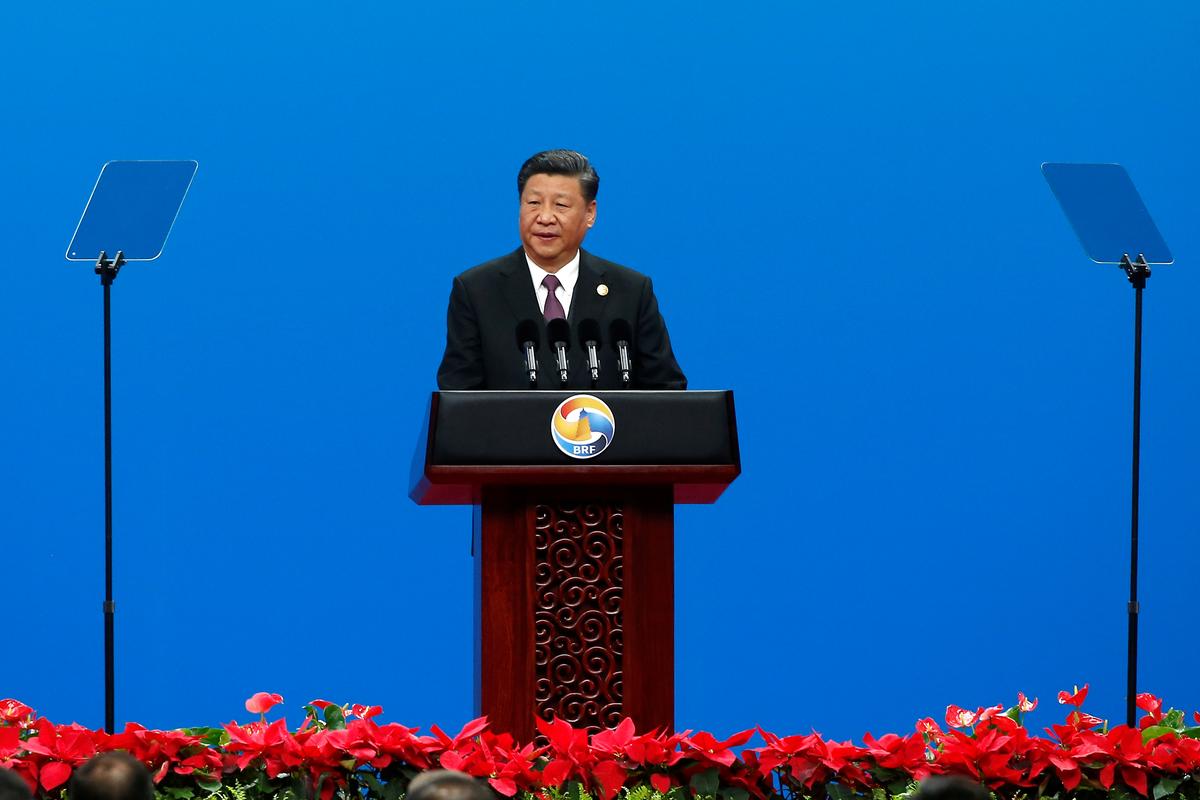BEIJING (Reuters) - China’s Belt and Road initiative must be green and sustainable, President Xi Jinping said at the opening of a summit on his grand plan on Friday, adding that the massive infrastructure and trade plan should result in “high quality” growth for everyone.
Xi’s plan to rebuild the old Silk Road to connect China with Asia, Europe and beyond with huge spending on infrastructure, has become mired in controversy as some partner nations have bemoaned the high cost of projects.
China has repeatedly said it is not seeking to trap anyone with debt and only has good intentions, and has been looking to use this week’s summit in Beijing to recalibrate the policy and address those concerns.
Xi said in a keynote speech to the summit that environmental protection must underpin the scheme “to protect the common home we live in”.
“We must adhere to the concept of openness, greenness, and cleanliness,” he said. “Operate in the sun and fight corruption together with zero tolerance.”
“Building high-quality, sustainable, risk-resistant, reasonably priced, and inclusive infrastructure will help countries to fully utilise their resource endowments.”
Western governments have tended to view it as a means to spread Chinese influence abroad, saddling poor countries with unsustainable debt.
While most of the Belt and Road projects are continuing as planned, some have been caught up by changes in government in countries such as Malaysia and the Maldives.
Those that have been shelved for financial reasons include a power plant in Pakistan and an airport in Sierra Leone, and Beijing has in recent months had to rebuff critics by saying that not one country has been burdened with so-called “debt traps”.
Visiting leaders include Russia’s Vladimir Putin, as well as Prime Minister Imran Khan of Pakistan, a close China ally and among the biggest recipients of Belt and Road investment, and Prime Minister Giuseppe Conte of Italy, which recently became the first G7 country to sign on to the initiative.
The United States, which has not joined the Belt and Road, is expected to send only lower-level officials, and nobody from Washington, citing concerns over opaque financing practices, poor governance, and disregard for internationally accepted norms.
“The United States is not sending high level officials from Washington to the Belt and Road Forum,” a spokesman for the U.S. Embassy in Beijing said.
“We continue to have serious concerns that China’s infrastructure diplomacy activities ignore or weaken international standards and best practices related to development,
labour protections, and environmental protection.”








